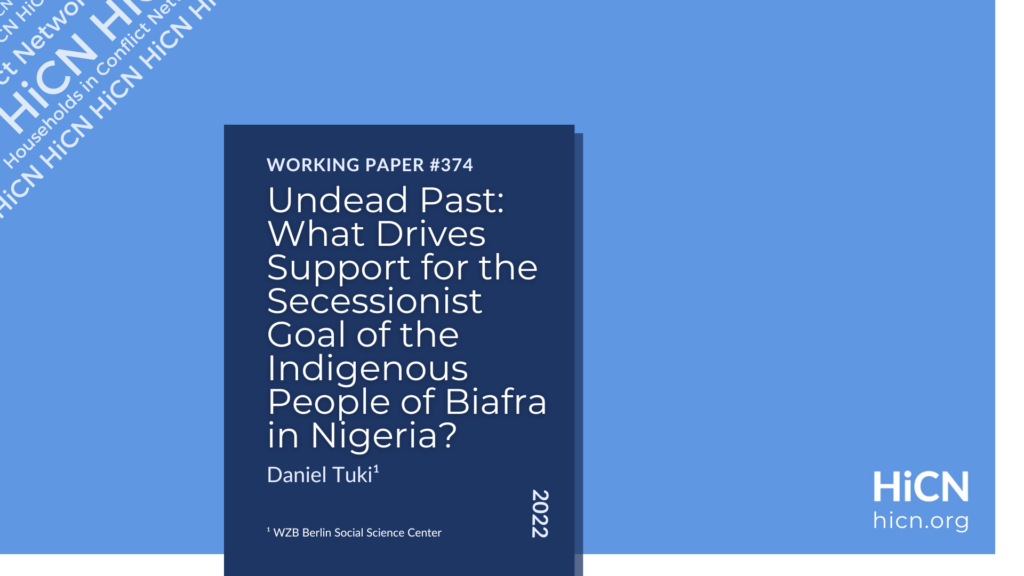
Although the secessionist conflict in Nigeria’s Eastern Region has persisted for over two decades and become increasingly violent, no study has, to the best of my knowledge, examined the factors influencing support for secession using representative data for Nigeria. This study fills that gap. Relying upon the horizontal inequalities (HEs) theory, this study examines the effect of ethnic marginalization and socioeconomic condition on support for secession. Among members of the Igbo ethnic group, perceived ethnic marginalization was found to increase the likelihood of supporting secession. Keeping all covariates at their mean levels, a unit increase in perceived ethnic marginalization increases the likelihood to “strongly agree” with secession by 13 percent. Socioeconomic condition was measured at the individual, household, and communal levels. The individual and household measures had no effect on support for secession, but the communal measure did. However, the results contravened the prediction of the HEs theory: improvements in socioeconomic condition at the communal level rather increased the likelihood of supporting secession. Belonging to the Igbo ethnic group was also found to increase the likelihood of supporting secession. Compared to non-Igbos, Igbos are 16 percent more likely to “strongly agree” with secession and 32 percent less likely to “strongly disagree” with it.